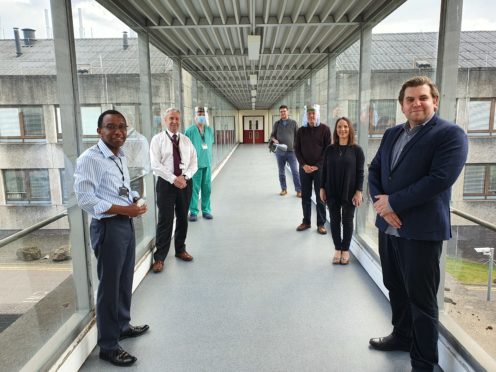Thousands of face shields are being made in Dundee to protect healthcare workers.
NHS Tayside has been working with Dundee University and NCR, which produces self scanner machines and ATMs, to create the reusable shields.
Almost 400 have already been given to health board staff, with thousands more to be distributed to health and social care partnerships.
The face shields use the same barrier protector that is used in incubators for babies in NHS Tayside.
A silicone strap is used to make it non-allergic, easy to clean, adjustable and comfortable for users. The medical physics team at Ninewells and the engineering team from the University of Dundee have industrially tested the product to ensure it meets infection control and health and safety standards.
Jean Ngoie, head of instrumentation and clinical engineering for NHS Tayside, said: “It has been a real community effort to make the shields and it would not have been possible without NCR. I am grateful for their help in sharing knowledge and material resources to build reusable face shields that are keeping our clinical colleagues safe during COVID-19.
“This came at a time when we weren’t sure how to get any extra supplies and NCR were so flexible and cooperative, working with medical physics and our University of Dundee colleagues to follow medical devices guidelines, which is not what they normally do in business.”
Material for the shields was donated by Perth business Personalised Just For You.
Lisa Dickson, NCR engineering director, said: “As soon as it became evident the impact COVID-19 was having globally and on our local community, NCR employees were keen to be able to help any way possible.
“We had seen a number of different designs for visors that individuals and companies were providing and we reached out to contacts that we had within Ninewells to ask if there was a preferred design and to see what NCR could do to assist.
“We worked closely with Ninewells and the University to ensure that the 3D printing design that we were using met the strict guidelines required for durability, assembly and cleaning to guarantee they provide the required level of protection for NHS employees.”










